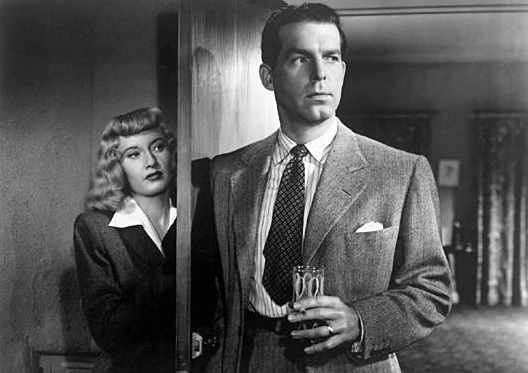Billy Wilder Billy Wilder (1906-2002), American motion-picture director, writer, and producer, whose best films--usually comedies--employ his distinctive dialogue to elucidate a darkly satirical view of human nature.
Publié le 12/05/2013
Extrait du document

Billy Wilder Billy Wilder (1906-2002), American motion-picture director, writer, and producer, whose best films--usually comedies--employ his distinctive dialogue to elucidate a darkly satirical view of human nature. Born Samuel Wilder in Vienna, Austria, he later moved to Berlin, Germany, where he worked first as a journalist and then as a screenwriter. Wilder left Germany after Adolf Hitler's rise to power in 1933, and in 1934 he immigrated to the United States, later becoming a U.S. citizen. Beginning in 1937, Wilder found his initial niche in Hollywood, California, as a screenwriter. From 1938 he teamed with American screenwriter Charles Brackett, with whom he was to carry on a long and successful collaboration until 1950. Together they wrote such memorably sophisticated screenplays as those for Midnight (1939), Ninotchka (1939), Arise, My Love (1940), Hold Back the Dawn (1941), and Ball of Fire (1941). Although the screenplays were well received, Wilder was increasingly dissatisfied with the way they were directed, so, following in the footsteps of American director Preston Sturges (who had also begun as a writer), he succeeded in persuading the studio to let him direct his own scripts. Wilder's American directorial debut, The Major and the Minor (1942), was a success, leading to a series of impressive films made by Wilder and Brackett in the 1940s: Five Graves to Cairo (1943), Double Indemnity (1944), The Lost Weekend (1945), A Foreign Affair (1948), and Sunset Boulevard (1950). The Lost Weekend won Academy Awards for best picture, best director, and best screenplay, and Sunset Boulevard won an Academy Award for best screenplay (which Wilder and Brackett shared with D. M. Marshman, Jr., their collaborator on the Sunset Boulevard script). Sunset Boulevard is often acclaimed as Wilder's greatest film, and it represented the culmination of his work with Brackett. For a few years, Wilder wrote and directed his own screenplays (many of them adaptations of theatrical material), including The Big Carnival (1951), Stalag 17 (1953), Sabrina (1954), The Seven Year Itch (1955), The Spirit of St. Louis (1957), and Witness for the Prosecution (1957; based on a courtroom drama by English writer Agatha Christie). For all of these films--and those that followed--he was his own producer. He then collaborated with screenwriter I. A. L. Diamond. After an homage to Wilder's idol, German-born director Ernst Lubitsch, with Love in the Afternoon (1957), the two created a series of brilliant comedies that continued to display Wilder's cynical, disenchanted view of both human nature and modern life in general: Some Like It Hot (1959), The Apartment (1960), One, Two, Three (1961), Irma La Douce (1963), and The Fortune Cookie (1966). By the 1970s Wilder began to experience difficulties with studio interference and with unsympathetic audiences. The Private Life of Sherlock Holmes (1970) was poorly received, as were his remake The Front Page (1974), Fedora (1978), and Buddy Buddy (1981). In the 1980s, Wilder retired to tend his impressive art collection, but his reputation as the last great survivor of Hollywood's golden age remained. He was honored with the American Film Institute's Life Achievement Award in 1986 and with the Irving Thalberg Award of the Academy of Motion Picture Arts and Sciences in 1987. In 1993 Wilder was awarded the National Medal of Arts for his lifetime body of work. Microsoft ® Encarta ® 2009. © 1993-2008 Microsoft Corporation. All rights reserved.
Liens utiles
- Martin Scorsese Martin Scorsese, born in 1942, American motion-picture director, whose best films have reflected the Italian American experience of his childhood in New York City's Little Italy neighborhood.
- John Huston John Huston (1906-1987), American motion-picture director and actor, who created some of the most critically acclaimed films of American cinema in his long and distinguished career.
- Jack Nicholson Jack Nicholson, born in 1937, American motion-picture actor, writer, director, and producer, known for his enigmatic, faintly menacing grin and his skill in portraying nonconformist loners.
- Stanley Kubrick Stanley Kubrick (1928-1999), American motion-picture director, many of whose films explore the dark side of human nature.
- Woody Allen Woody Allen, born in 1935, American motion-picture director, actor, and writer, many of whose films are humorous depictions of neurotic characters preoccupied with love and death.































